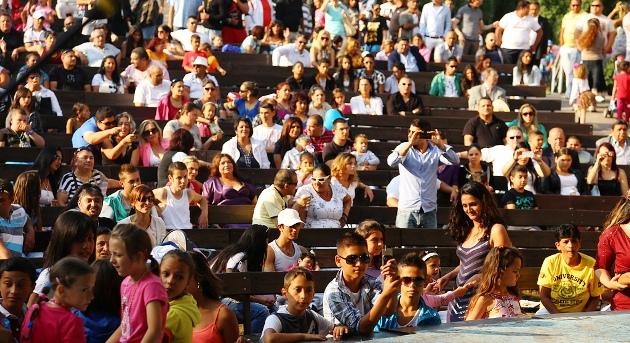Czech Republic: Romani activist says excluded localities aren't just about welfare

They may be poor, but their culture is rich. That’s how Milan Horváth, General Director of the Excluded Locality Center (Centrum pro vyloučenou lokalitu) describes the group of people who have come together in the New Town neighborhood of the Czech town of Karviná.
The community has its own dance ensemble, discotheques for local children, and musical group, and the organizers do their best to continually innovate what they offer both adults and children. The Karvinský a Havířovský edition of news server Deník.cz has published a report on the center.
"The number of children who visit us here is really significant. Adults collaborate with us too," Horváth says.
The Center is blossoming even though the money to implement all of its activities and its overall operations comes only from its own limited budget. "Momentarily our budget is CZK 60 000," the director says.
If you ask him how the people who visit the center feel, he answers that he often hears children and youth say that they don’t feel like they are actually members of the local community because they are different. "You know, it may be true that the Romani minority is more temperamental from birth, as can be heard, for example, in Romani music. On the other hand, we want to show the wider public that an excluded locality is not just about drawing welfare and some of the vices associated with this minority. We will do our best to achieve this through the widest possible range of planned activities," says Horváth.
The Center has been working with children and youth since the summer vacation of 2013. It offer a genuinely wide range of activities.
Organizers seek out and work with talented individuals of any age and will soon hold auditions for the first Romani ensemble to perform both modern and traditional Romani dance. "We provide them with a safe place for their cultural creativity, their recreational activities, and the values of their minority. We are always looking for new opportunities to meet their cultural demands," Horváth said, adding that the Center is planning dance performances, field trips, publicity about the culture of the excluded locality, and summer camps.
The Excluded Locality Center is also involved in activities and outreach by the Karviná Municipal Police and other institutions. Among the genuinely large number of events the Center is going to hold in future will be lectures on the topic of "The Majority and The Minority".